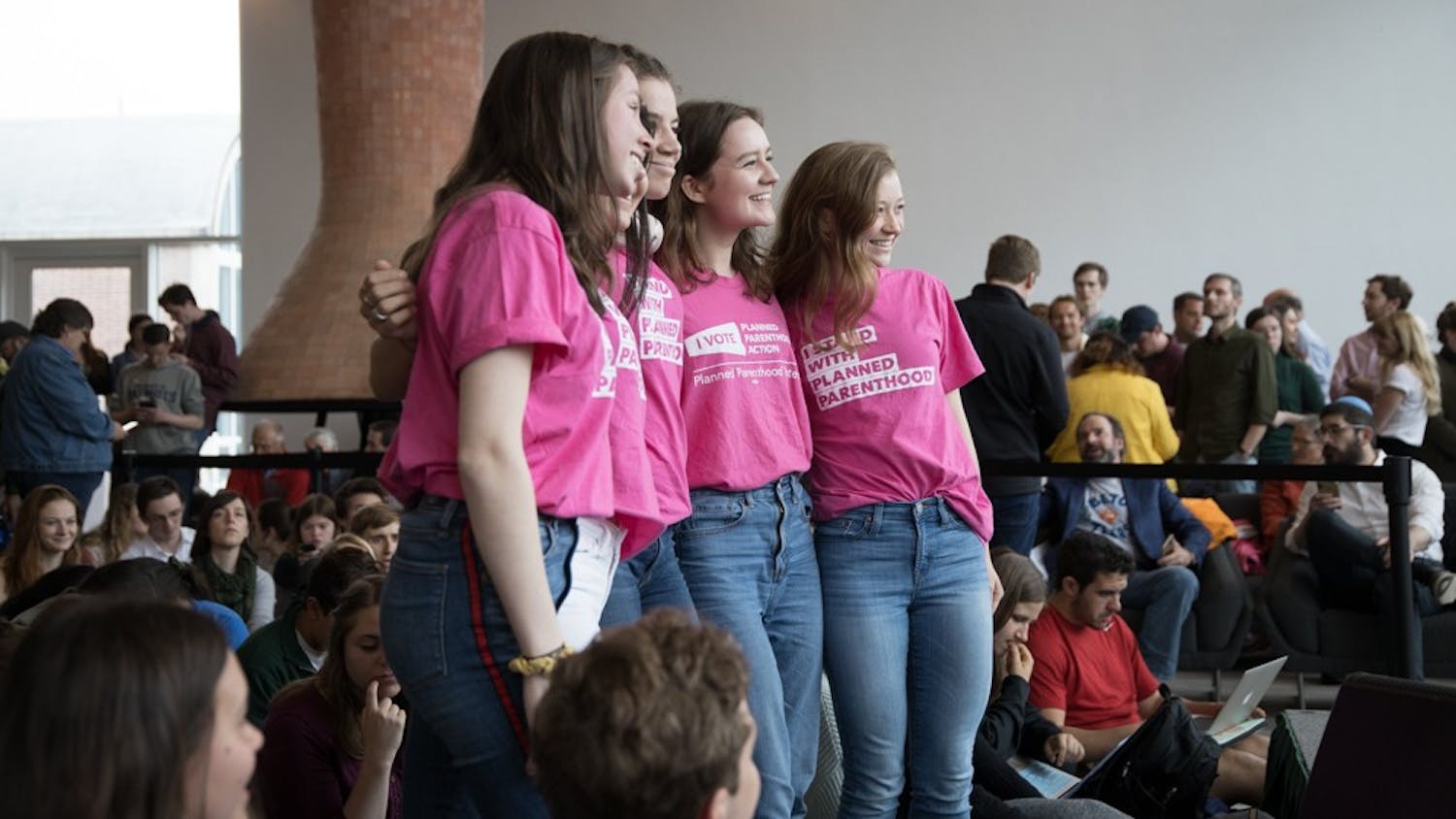Dartmouth is full of ambiguities and uncertainties. From the flexibility of the D-Plan to the fluctuating Hanover weather, there seem to be few things here that have a permanent, black-and-white definition. The students’ weird, overly specific lingo is no exception.
The word “FaceTime-y” is often one of the first that new students learn upon arriving on campus. For me, my trip leaders were the ones who informed me of its meaning before we even left Hanover to go hiking for the week. I could sense the disdain in their voices; I knew this was not something that everyone wanted to be. Still, I wondered why this was such a bad thing. Isn’t someone who is FaceTime-y just someone who knows a lot of people?
Ben Lehrburger ’23 had a similar experience; his trip leaders told him what FaceTime-y was, and that he didn’t want to be it. However, he seemed to have more of a clear idea about what the word represents, stating that the label holds connotations of being fake or superficial.
However, Lehrburger noted that there’s a difference between somebody who’s FaceTime-y and someone who is just friendly and outgoing.
“I think it’s one type of thing to be a nice person and care about people, and I think it’s another to be FaceTime-y, and sort of social climb, trying to finesse your way up the social hierarchy,” Lehrburger said. “If you’re a nice person and you just want to care about people, you’re not going to go out of your way to get in touch with people like that.”
Annie Politi ’23 is recognized within our class as the definition of FaceTime-y, and she knows it, too.
“I didn’t want to be at first because I think the word has an ‘ugh’ connotation, but I’ve kind of accepted it at this point,” Politi said.
Politi can be identified by almost anybody through her radiantly positive energy and her willingness to talk to anybody and everybody, no matter where she is. Her definition of the word conflicts with Lehrberger’s; she sees it as something that can be positive. Politi admitted that she understands why some people might view being FaceTime-y as a bad thing. She said that she thinks there are two different kinds of FaceTime-y.
“I think if you’re FaceTime-y because you want to be popular or established on campus it can be bad, but I think if you’re FaceTime-y because you genuinely want to get to know people on this campus, and genuinely enjoy those interactions and little ‘heys’ when you walk by, I think that’s a good thing,” Politi said.
Harrison Lawson ’23, who also seems to be well-known amongst the class, said he does not see himself as FaceTime-y and also thinks the word has negative and superficial connotations. He said he believes the reason so many are quick to be FaceTime-y is due to the career-oriented focus that students on campus hold.
“I feel like the culture here is all about networking. People are getting ready to network for jobs so they feel like this is their battleground; their training ground is FFB and it’s just live or die out there,” Lawson said.
Politi attributes her FaceTime-y description to the size of Dartmouth’s student population, not its student culture.
“We go to a school that’s the size of some people’s high schools,” Politi said. “So for me, not only are there so many amazing people that I want to get to know here, but also I feel like it’s a socially approachable setting, and I have those opportunities — so why not take them?”
Politi also said that sometimes people grow frustrated with her because they can barely hold a conversation with her when walking around campus as she greets almost everybody who passes. She said she often ends up showing up late to various functions because she stops to talk to people on her way (she was even 10 minutes late to our interview because of this).
Interestingly, gender seemed to come up as something that might help define whether or not a person is FaceTime-y. In my experience, more girls seem to be called FaceTime-y than guys. When I mentioned this to Lawson, he seemed to agree.
“I had never thought about that, but now that you bring it up, most of the time when people bring up FaceTime-y, I usually think of women,” Lawson said.
Lehrberger and Politi, however, said they do not see a difference in gender when it came to being FaceTime-y, as they consider an equal amount of men and women FaceTime-y.
Ultimately, while the term seems to connote negative tendencies to those around campus, it’s clear that there’s no consistent definition. While some believe it is simply somebody who is superficial or concerned about social status, others think it describes somebody who likes to be social and talk to people. Even more believe it can come to mean either.
Personally, I think the word’s popularity speaks to Dartmouth’s tight-knit, socially oriented culture. It’s not bad to be well-known on campus; at a school of our size, it’s pretty common. And even if somebody makes a concerted effort to achieve campus celebrity, I don’t think we should get down on them for it. Everybody wants to be well liked to some capacity, and it shouldn’t be our responsibility to police them for it. So even if that’s an unpopular take, I’m still willing to make it: being FaceTime-y is alright by me.



